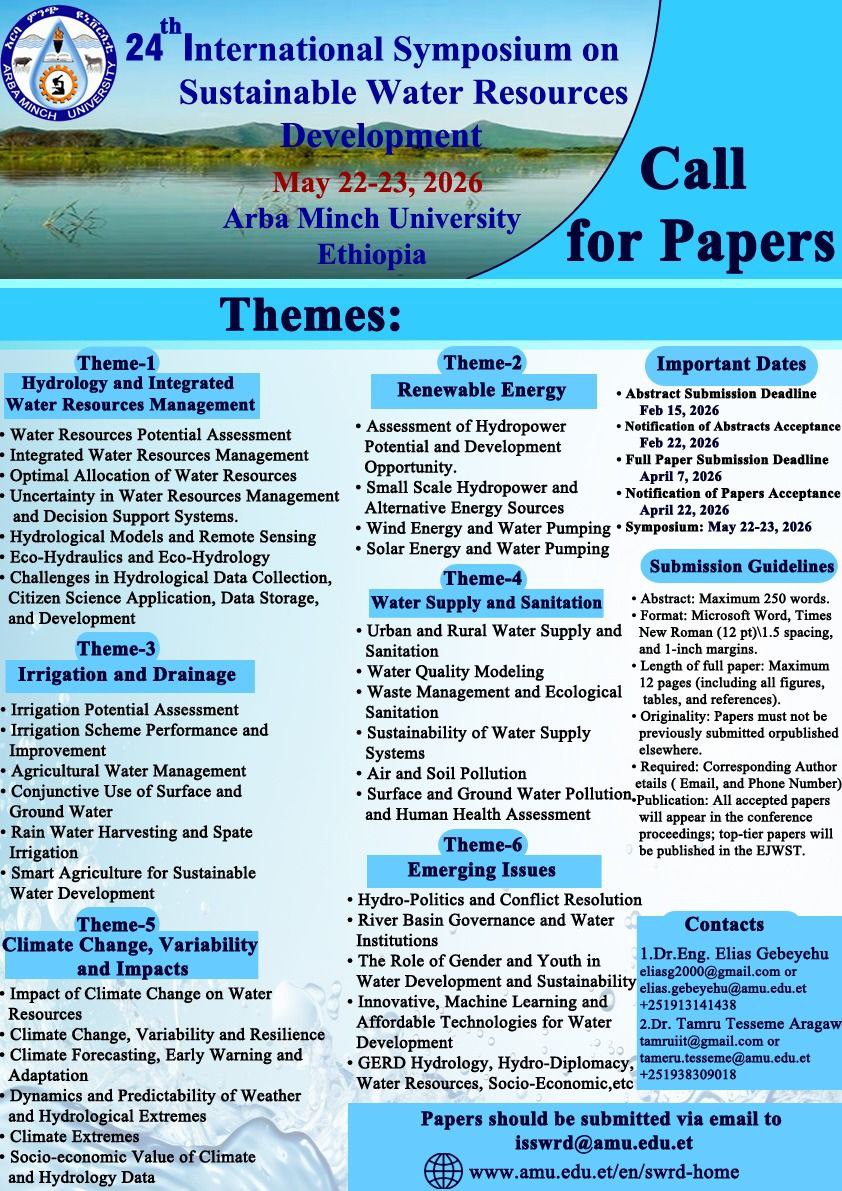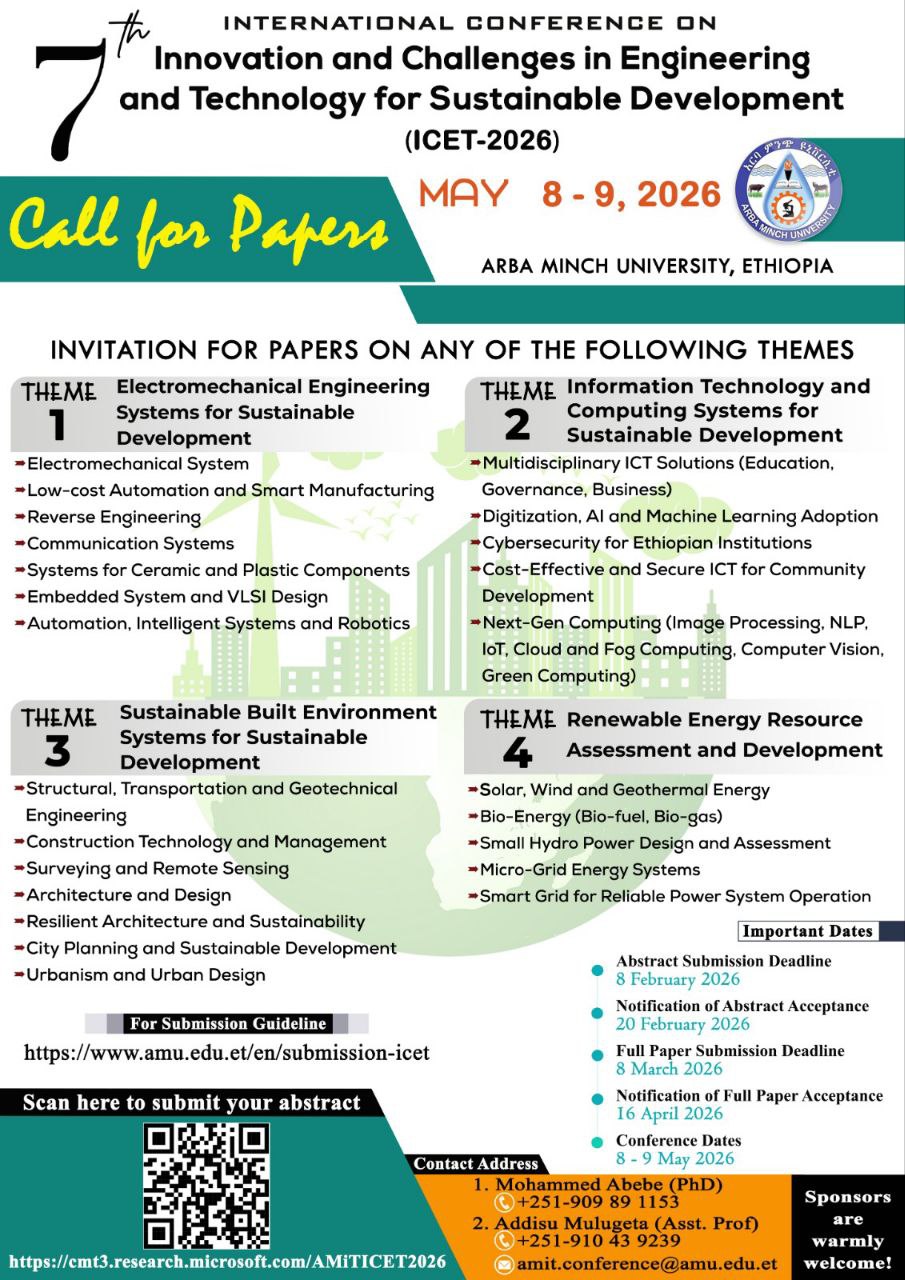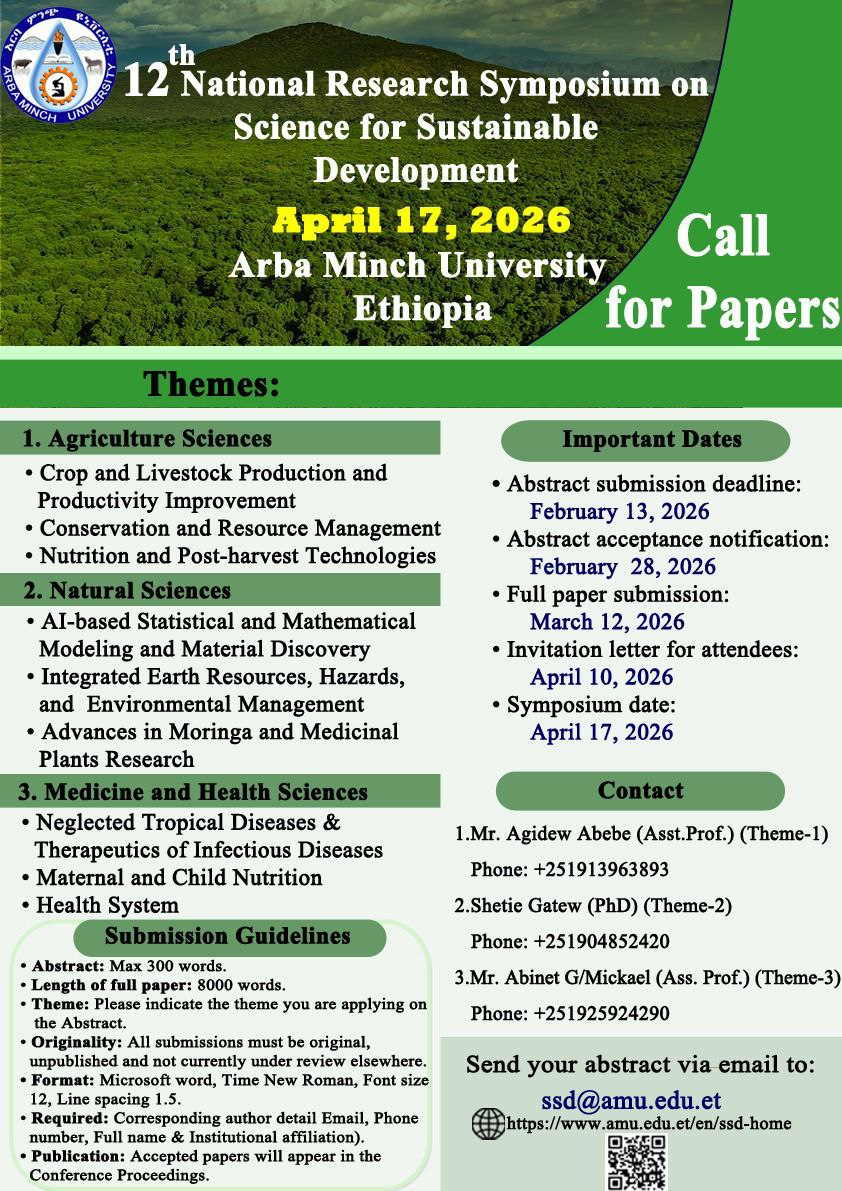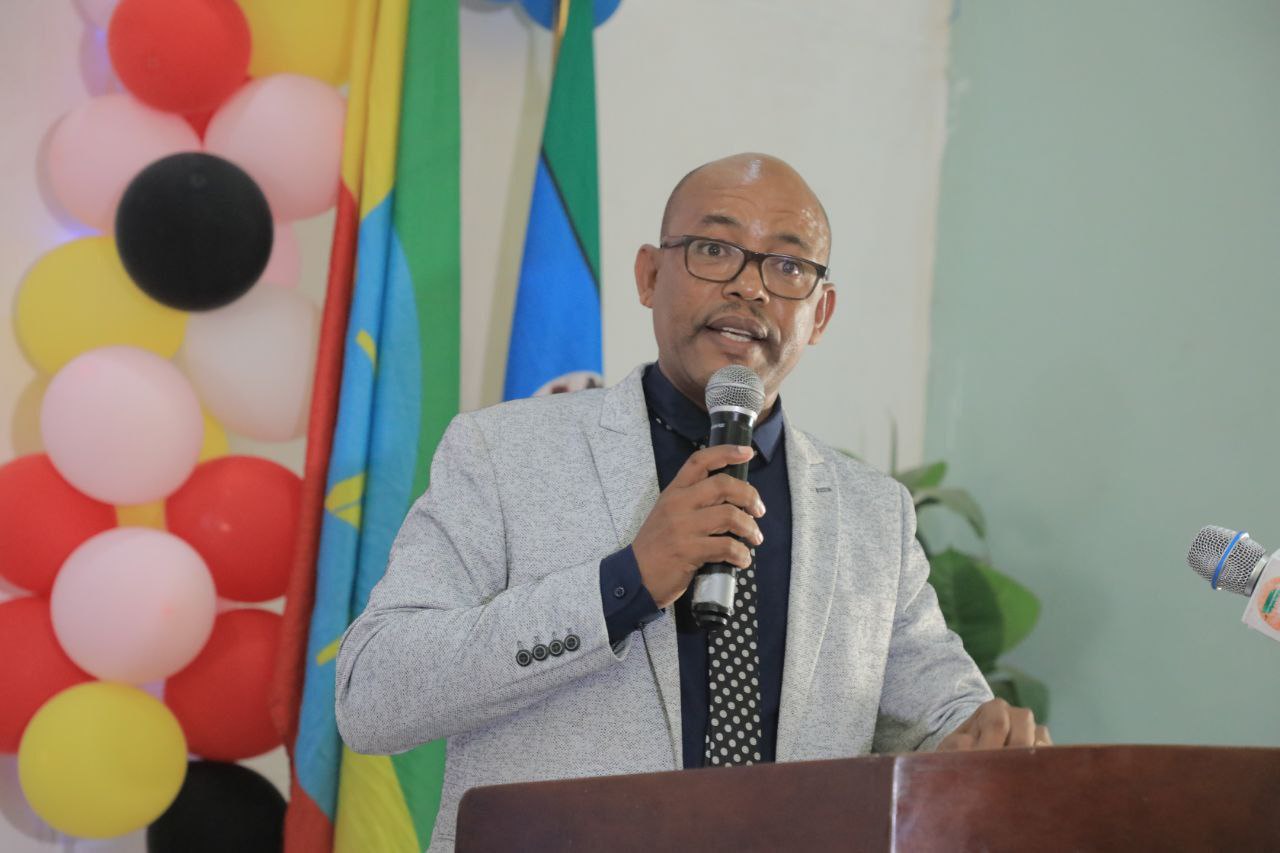Arba Minch University (AMU) hosted the 8th National Symposium on Indigenous Knowledge for Sustainable Peace; a pivotal gathering that underscored the university's commitment to fostering sustainable governance through the integration of indigenous wisdom. The event attracted a diverse audience of researchers, policymakers, and experts dedicated to exploring the vital role of indigenous knowledge in peace building. The symposium with the theme “Indigenous Knowledge for Sustainable Peace” served as a platform for dialogue and collaboration among stakeholders from various universities including Addis Ababa, Haromaya, Woldiya, and Jimma as well as representatives from regional and zonal structures. Click here to see more photos.
Teklu Wegayehu (PhD), Vice President for Research and Cooperation at AMU, in his opening remarks, emphasized the significance of indigenous knowledge as a living, evolving body of wisdom that shapes community governance and environmental sustainability. He acknowledged the contributions of indigenous communities particularly the Gamo elders who have been recognized as peace ambassadors for their unwavering commitment to fostering harmony and cooperation. Articulating the symposium's objective, Dr. Teklu, said, it’s meant to explore the intersections between indigenous knowledge and sustainable peace urging participants to recognize that peace is not merely the absence of conflict but a continuous process requiring commitment, patience, and resilience. He also called for a collective effort to integrate indigenous wisdom into modern practices and policies fostering pathways toward reconciliation and healing.
Taddesse Wolde (PhD), from Oxford University, a keynote speaker, highlighted the need for collaboration between traditional healers and biomedical researchers advocating for the validation of indigenous medicinal practices to enhance healthcare access in underserved communities.
Ayele Fikera (PhD), from Addis Ababa University, said, indigenous wisdom not only promotes unity and solidarity but also instrumentally plays in conflict resolution and peace building initiatives. The urgent need for the Ethiopian Heritage Conservation Authority is to bolster research and studies in this area for such efforts are essential for national stability and reconciliation, he emphasized.
Temesgen Menwagaw (PhD), from AMU, shed light on “Gamo Dubusha” to be a pivotal indigenous institution within the Gamo social framework. This traditional mechanism plays a critical role in conflict resolution and social cohesion often engaging respected elders in community gatherings beneath large trees, he noted. According to him, the symposium reinforced the necessity of recognizing and preserving these indigenous practices which are crucial not just for the Gamo people but for the broader landscape of peace building in Ethiopia; by promoting these values, the country can take significant strides towards a more harmonious society.
Yonas Yilma (PhD), a heritage researcher at the Ethiopian Heritage Conservation Authority, echoed the same sentiments of other speakers stressing the need to protect and pass the indigenous knowledge to future generations. He also pointed out that there is increased support for research and study initiatives that aim to document and preserve these invaluable cultural practices.
Seid Ahmed (PhD), Director of the Institute of Culture and Language Studies, anchored the program and underscored the importance of celebrating and leveraging the indigenous knowledge to address contemporary challenges. Similarly, Tesfaye Habtemariam (PhD), AMU Research Affairs Executive Director, welcoming, the audience, recognized the contributions of Gamo elders who recently got honored as peace ambassadors at the African Union for their commitment to peace. Ongoing efforts to register the “Dubusha” cultural practices of the Gamo tribe by UNESCO will continue to the end further because it will broaden the importance and impact of preserving indigenous heritage, he stated.
The symposium featured 12 presentations from researchers across five universities covering topics such as the Gamo Dubusha system of conflict resolution and the role of indigenous knowledge in promoting good governance. Presenters emphasized the importance of preserving and promoting indigenous knowledge as a means of fostering unity, solidarity, and peace in Ethiopia.
For more Information Follow us on:-
Website - https://www.amu.edu.et/
Telegram - https://t.me/arbaminch_university
Facebook - https://www.facebook.com/ArbaMinchUniversityccd/
YouTube - https://www.youtube.com/channel/UCOO_nclhMo8M3r74OyPBlVA
Public and International Relations Executive





